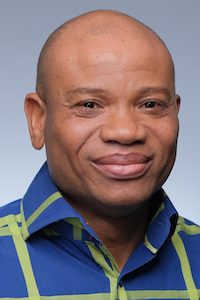The Global Change and Sustainability Center is a nexus for faculty who are broadly interested in the interactions among human and natural ecosystems and the global changes that are influencing dynamics, sustainability and connectivities across these systems.
GCSC-affiliated faculty conduct cutting-edge research focused on reconstructing the past, understanding current and complex environmental challenges, and predicting future scenarios – all with the same overall goal of sustainable solutions. These affiliates benefit from and contribute to interdisciplinary engagement, research, and graduate student training.
The Global Change and Sustainability Center is composed of faculty from colleges across the University of Utah. Click through the tabs to view affiliated faculty from each college. Go here for an alphabetical list of faculty affiliates.
Research Statement:
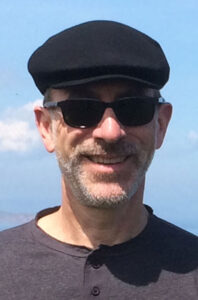 Keith Bartholomew
Keith BartholomewAssociate Professor, City & Metropolitan Planning
Research Statement:
My current primary research focus is assessing the extent and nature of land-use transportation scenario planning in U.S. metropolitan areas.
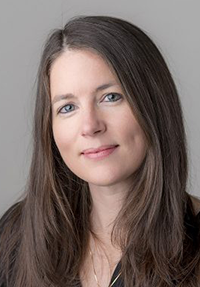 Sarah Canham
Sarah CanhamAssociate Professor, Social Work and City & Metropolitan Planning
Research statement:
My community- engaged research examines homelessness, housing security, health and social service delivery, and aging. Using a social justice lens, my interdisciplinary research seeks solutions to systemic barriers to aging well in various environments.
Divya Chandrasekhar
Assistant Professor, City & Metropolitan Planning
Research Statement:
My research focuses on community and household recovery from catastrophic disasters,
with an emphasis on disaster policy and planning practice.
Professor, City & Metropolitan Planning
Research Statement:
Reid Ewing’s research interest include urban development and climate change,
pedestrian and transit oriented design, and sprawl and obesity.
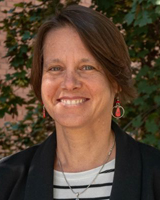 Stacy Anne Harwood
Stacy Anne HarwoodProfessor, City & Metropolitan Planning
Research Statement:
My research focuses on urban planning processes in diversifying working-class communities, including how land-use decision making and planning processes can marginalize or empower residents.
Research Assistant Professor, City & Metropolitan Planning
Research Statement:
Sarah Hinner’s research interests focus on the ecological, economic and social roles and value of green infrastructure in and around cities.
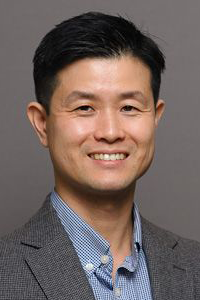 Andy Hong
Andy HongAssistant Professor, City & Metropolitan Planning
Research Statement:
My research lies at the nexus of urban planning, transportation, and public health. Health and sustainability are key cross-cutting themes of all my research, and my goal is to bridge the gap between urban planning and public health to develop evidence-based policy solutions to emerging health and sustainability challenges linked to urban and transportation planning.
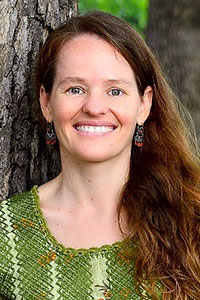 Alexandra Ponette-Gonzalez
Alexandra Ponette-GonzalezAssociate Professor, City & Metro Planning; Curator of Urban Ecology, NHMU
Research Statement:
My research focuses on human-atmosphere-biosphere interactions under global change. I explore how human activities alter ecosystem processes via ‘bottom up’ changes in vegetation distributions and ‘top down’ changes in emissions sources. My work spans diverse ecosystems from tropical forest to urban, and advances understanding of the causes and ecosystem consequences of changing land use and atmospheric drivers.
 Alessandro Rigolon
Alessandro RigolonAssistant Professor, City & Metropolitan Planning
Research Statement:
Associate Professor, Architecture
Research Statement:
Joerg Ruegemer’s research focuses on highly energy-efficient and cost-effective buildings, design strategies, systems, and post-occupancy building monitoring.
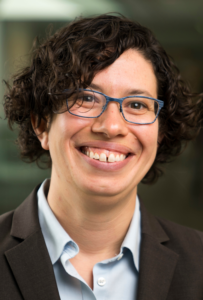 Lauren Barth-Cohen
Lauren Barth-Cohen
Assistant Professor, Educational Psychology
Research Statement:
I study student learning of the often-difficult concepts in science that are foundational to the scientific enterprise and central to science education. My approach to learning focuses on characterizing learners’ knowledge system over time, and I concentrate on contexts where they are engaged in a variety of knowledge building practices that are similar to the practices of professional science and central to reform based science education efforts (e.g. developing and using scientific modeling, analyzing and interpreting data, and engaging in argument from evidence).
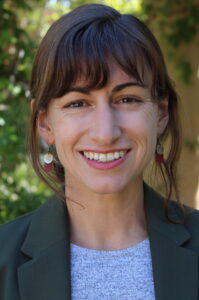 Lynne Zummo
Lynne ZummoAssistant Professor, Educational Psychology
Research Statement:
The goal of my research is to generate new knowledge around learning of contentious, societally- embedded issues in science often related to sustainability. I argue that theories historically used to explain science learning do not sufficiently account for the complexity of dynamics involved with modern, risk-pervasive, and identity-provoking issues such as climate change. Rather, my work seeks new ways of understanding learners’ engagement with contentious issues by integrating sociocultural theories of language and identity with concepts from psychology and sociology.
The departments of Materials Science and Engineering (MSE) and Metallurgical Engineering (MET E) have merged into a single academic department administered jointly by the College of Engineering and College of Mines and Earth Sciences.
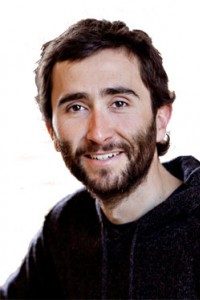
Marc Calaf
Assistant Professor, Mechanical Engineering
Research Statement:
Marc Calaf’s research focuses on the development, understanding and modeling of wind energy with its feedbacks to the local atmosphere and surrounding environment, in order to better assess the future development of sustainable sources of energy.
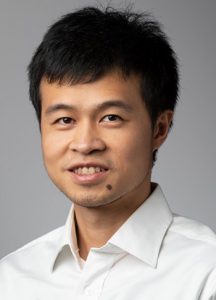 Jianli Chen
Jianli Chen
Assistant Professor, Civil & Environmental Engineering
Research Statement:
As a building scientist who is devoted to enhance human living, I am interested in utilizing computing techniques to improve building and urban intelligence and sustainability. My research seeks to further improve building sustainability with renewable energy integration, resilience and human-centered service.
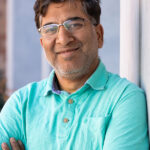 Ramesh Goel
Ramesh Goel
Professor, Civil & Environmental Engineering
Research Statement:
Ramesh Goel studies processes in engineered and natural systems to accomplish environmental sustainability. His research at the interface of environmental process engineering and environmental microbiology contributes to urban water problems and water sustainability in general.
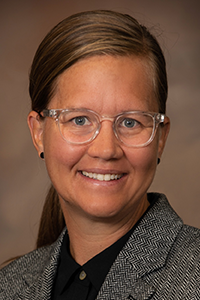 Heather Holmes
Heather HolmesAssociate Professor, Chemical Engineering
Research Statement:
My research group investigates atmospheric physics, air pollution sources, transport and dispersion, and provide data for human health and public policy assessments. My most recent research efforts include incorporating air quality modeling estimates in health effects studies, satellite remote sensing to model surface pollutant concentrations downwind of wildfires, and data fusion techniques to improve air pollution exposure estimates.
 Kerry Kelly
Kerry Kelly
Assistant Professor, Chemical Engineering
Research Statement:
Much of Dr. Kelly’s research aims to understand and address air-quality challenges, with an emphasis on fine particulate matter (PM). She was awarded an early-career grant from the NIH to study the health effects of atmospherically aged combustion particles.
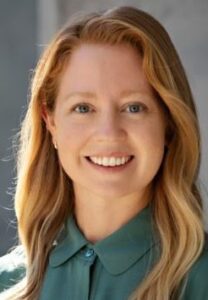 Emily Marron
Emily Marron
Assistant Professor, Civil & Environmental Engineering
Research Statement:
My research interests are centered around environmental engineering, with a focus on contaminants in urban water systems. In particular, I am interested in evaluating the formation and fate of chemical compounds during drinking water treatment and advanced wastewater treatment for potable water reuse, with the goal of optimizing contaminant removal.
 Meredith Metzger
Meredith MetzgerAssociate Professor, Mechanical Engineering
Research Statement:
Meredith Metzger’s research interests include Development of experimental techniques and sensors for fundamental fluid dynamic and atmospheric measurements, as well as design and fabrication for renewable energy.
 Eric Pardyjak
Eric PardyjakProfessor, Mechanical Engineering
Research Statement:
My research interests include fundamental and applied fluid mechanics research. In particular, the application of fundamental turbulence concepts to studies in environmental atmospheric flows. More recent interests include optimization of sustainable urban designs for air quality and energy efficiency.
Assistant Professor, Electrical & Computer Engineering
Research Statement:
Masood Parvania’s interests lie at the intersection of electrical engineering, reliability/risk theory,
and operations research. He focuses on developing mathematical optimization techniques for sustainable, resilient and economic operation of electricity energy infrastructure to assure the continuity of an environmentally friendly electricity supply.
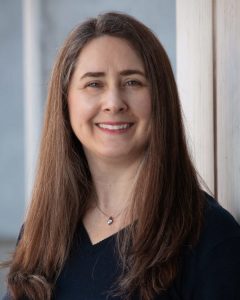 Christine Pomeroy
Christine PomeroyAssociate Professor, Civil & Environmental Engineering
Research Statement:
Christine Pomeroy’s research and teaching interests focus on urban systems and their interaction with natural environmental systems: urban water engineering & sustainability, stormwater management, watershed management, permitting and compliance, modeling, GIS applications in water resources, and hydrology.
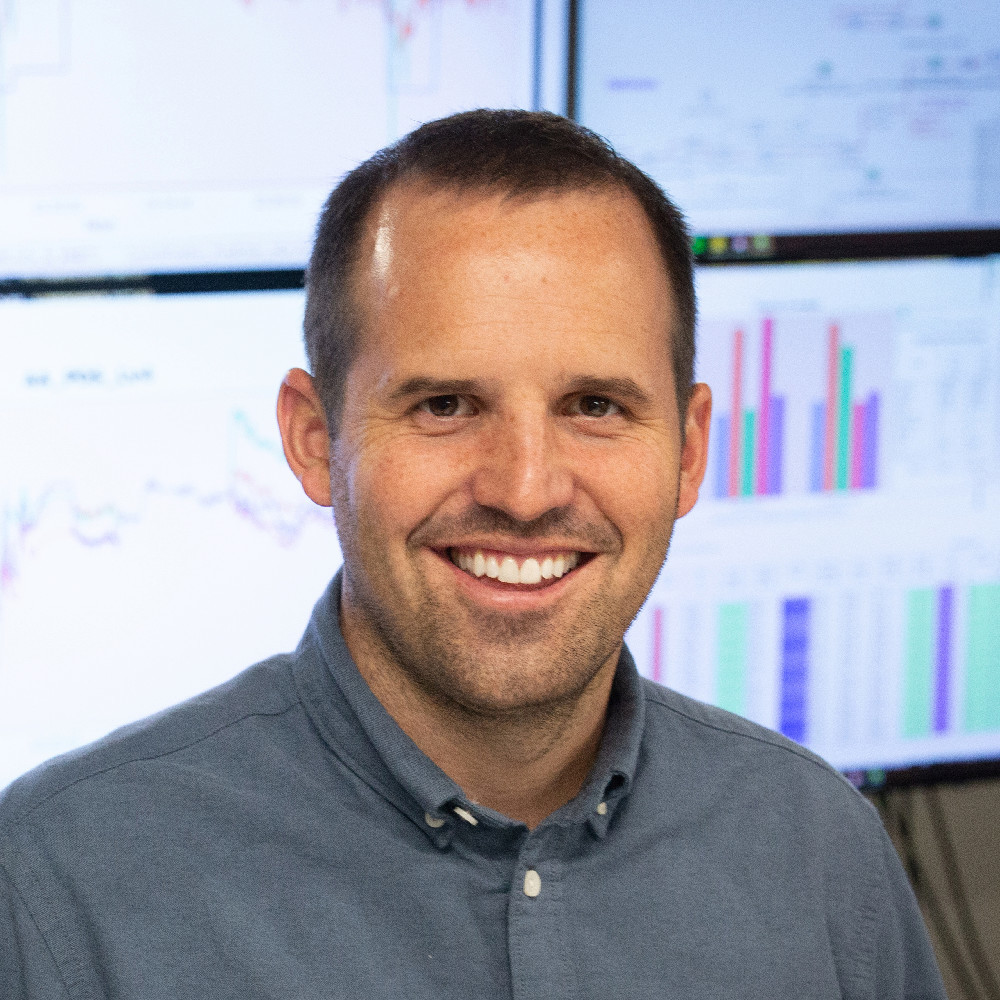 Kody Powell
Kody Powell
Assistant Professor, Chemical Engineering
Research Statement:
My work focuses on taking various diverse components of an energy system and finding ways to make them work harmoniously together through automation. This field of research is critical for integration of intermittent renewable energy into conventional energy systems.
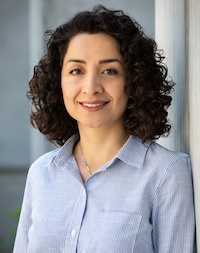 Shahrzad Roshankhah
Shahrzad Roshankhah
Assistant Professor, Civil And Environmental Engineering
Research Statement:
My research involves analyzing and designing critical energy and environmental geo-systems towards higher production, higher safety, less environmental impact, and higher adaptation to evolving environmental stressors. Examples of these systems are renewable geo-energy (e.g., shallow and deep geothermal energy systems), geological storage of energy and waste (e.g., solar heat storage, CO2, H2, and nuclear waste disposal), and unconventional fossil energy (e.g., shale gas and oil, and oil sands).
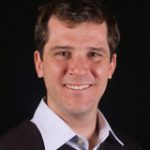 Michael Scarpulla
Michael ScarpullaAssociate Professor, Materials Science & Engineering, Electrical & Computer Engineering
Research Statement:
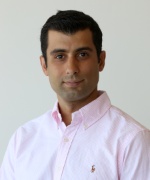 Mostafa Sahraei-Ardakani
Mostafa Sahraei-Ardakani
Assistant Professor, Electrical & Computer Engineering
Research Statement:
My research lies at the intersection of energy engineering, environmental engineering, economics, and public policy. My research addresses a broad range of topics including renewable energy integration, market design for the future smart grid, energy and environmental policy development, and cybersecurity of the power system, in order to to develop the next generation of energy systems that are sustainable, environmentally-friendly, and economically-efficient.
Taylor Sparks
Assistant Professor, Materials Science and Engineering
Research Statement:
My research focuses primarily on the discovery, synthesis, and characterization of new materials for energy applications. I seek to discover new and improved materials for both renewable energy as well as conventional energy applications, and to develop new materials that balance resource and performance considerations.
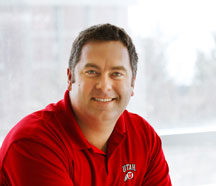 Rob Stoll
Rob StollAssociate Professor, Mechanical Engineering
Research Statement:
Rob Stoll’s research interests focus on fluid mechanics in the environment: computational fluid dynamics, large-eddy simulation, atmospheric boundary layer, land-atmosphere interactions, experimental fluid mechanics, multiscale analysis, high-performance computing and hydrology.
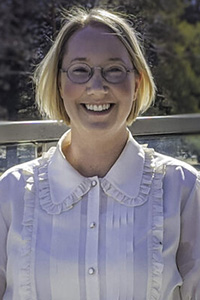
Roseanne Warren
Assistant Professor, Mechanical Engineering
Research Statement:
Roseanne Warren’s research is focused on the sustainable design of electrochemical energy storage devices, including supercapacitors and batteries.
Jennifer Weidhaas
Associate Professor, Civil and Environmental Engineering
Research Statement:
My research in environmental engineering has a particular emphasis on biological processes and the fate and transport of contaminants and pathogens in the environment.
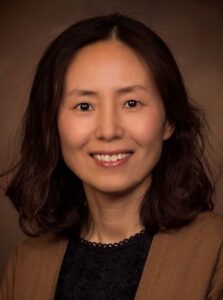 Heayoung Yoon
Heayoung Yoon
Associate Professor, Electrical and Computer Engineering
Research Statement:
My research focuses on renewable energy that can meet rapidly growing energy demand in our society. Specifically, we are interested in developing exploratory devices fabricated with cost-effective nano-structured materials. Our research has built on interdisciplinary collaborations in academia, national labs, and industries, enabling synergetic group efforts to tackle the challenges in energy.
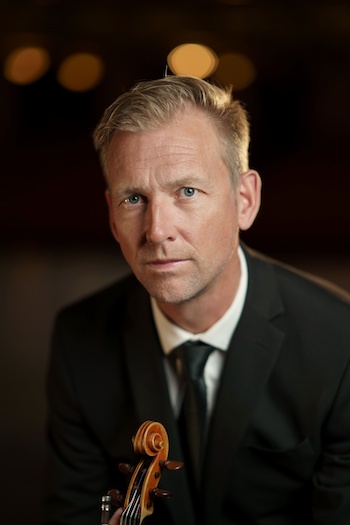 Hasse Borup
Hasse BorupProfessor, School of Music
Research Statement:
I am currently directing a large-scale interdisciplinary project called Artivism for Earth (A4E). The project has the aim of bringing prominent artists, scientists, scholars and educators together to find new and innovative ways of communicating the urgency of climate change. I am interested in finding new collaboration possibilities and sharing ideas to bring more people together to find solutions for our future generations.
 Elisabet Curbelo
Elisabet CurbeloAssistant Professor, School of Music
Research Statement:
My research focuses on creating interdisciplinary collaborative performance, the use of sensors to control electronics with movement, extended vocal techniques based on her study of West Asian music and culture. Mainly I am interested in working on artistic projects that promote diversity, inclusivity, and inspire social change. I am currently co-directing a large-scale interdisciplinary project called Artivism for Earth (A4E). The project brings together prominent artists, educators, and scientists from the University of Utah campus and across the nation to create performance pieces informed by the science on climate change effects.
Jeff Rose
Associate Professor (Lecturer)
Parks, Recreation, and Tourism
Research Statement:
Jeff Rose’s research engages with political ecology to examine nature-society relationships, engaging a justice-focused lens to a variety of settings: homelessness in parks; outdoor education; illegal marijuana production on public lands; and place attachment in protected areas.
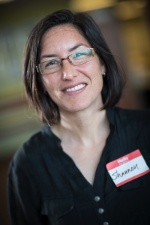 Shannon Jones
Shannon JonesAssistant Professor (Clinical)
Department of Nutrition and Integrated Physiology
Research Statement:
Applying critical environmental and social justice lenses, I attend to ways in which intersecting structural inequities and barriers prevent underserved and marginalized communities from achieving their self- defined subjective health and wellness. One of my strategic aims is to incorporate critical nutritional, environmental, and social justice in conjunction with our efforts to improve health for underserved, underrepresented and marginalized communities.
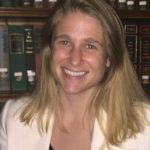 Elizabeth Callaway
Elizabeth Callaway
Assistant Professor, English
Research Statement:
I study the environment from the perspective of literary studies, examining how texts of all sorts portray the more-than-human environment and what those portrayals mean for how we think of ecosystems, environmental challenges, and human/nonhuman interactions.
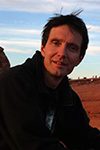 Kevin M. Deluca
Kevin M. DelucaProfessor, Environmental Humanities
Research Statement:
Kevin Deluca’s research focuses on the ways in which communication technologies mediate human relations with the natural world. Current foci include environmental activism in China, and the impact of social media on the mobilization of environmental behaviors.
Isabel Dulfano

Associate Professor, Language and Literature
Research Statement:
Isabel Dulfano’s research interests include examining models for sustainable development in Latin American rural and Indigenous communities, and the role of Indigenous feminism in preserving and sustaining the natural world.
 Danielle Endres
Danielle EndresProfessor, Communication
Research Statement:
Danielle Endres’ research examines the rhetorical dynamics of nuclear controversies, with an emphasis on highlighting marginalized voices in these controversies, as well as the study of public controversy over climate change.
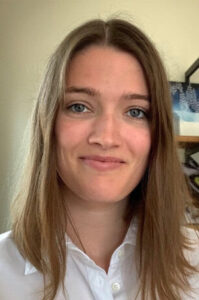 Isabelle Freiling
Isabelle FreilingAssistant Professor, Communication
Research Statement:
My research examines the use and effect of media, in both science and political communication. Specifically, I focus on the intersection of science and politics and how different publics perceive the social impacts of science. This also comprises work on how we can meaningfully engage with different publics on science, including voices that have historically not been included.
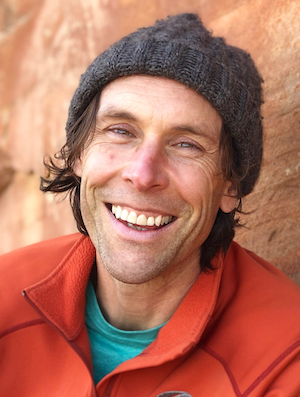 Cris Ingraham
Cris IngrahamAssociate Professor, Communication
Research Statement:
My work draws on critical theory from the Humanities and STS scholars to think not only about how humans configure a certain relationship with the environment based on how we communicate with and about it; but, also, to anthro-decentrize critical thought by looking to plant and animal ecosystems to learn better human communicative practices from them.
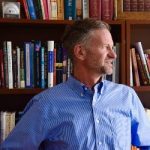
Director, Environmental Humanities; Professor (Lecturer), Honors College
Research Statement:
Jeffrey McCarthy aims to guide students toward holistic understandings of nature’s function in culture and the practical solutions we can pursue toward addressing the problems we study — from environmental racism to land preservation.
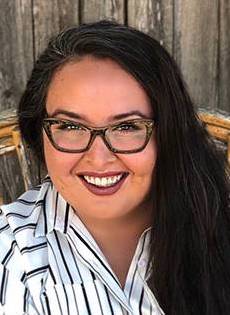 Angela Robinson
Angela RobinsonAssistant Professor, Environmental Humanities and Gender Studies
Research Statement:
My research and teaching interests focus on Indigenous feminisms, interrelations of the human and more-than-human, and social movements for environmental and climate justice in Indigenous North America and Oceania.
 Sara K. Yeo
Sara K. YeoAssociate Professor, Communication
Research Statement:
Sara Yeo’s research focuses on the intersection of media, science, and politics, with a specific focus on the human dimensions of and communication related to environmental issues and emerging technologies
Robert Adler
Professor, Law
Research Statement:
Robert Adler’s areas of expertise include administrative law, environmental and natural resources law, and water law.
 Robert B. Keiter
Robert B. KeiterDistinguished Professor, Law
Research Statement:
Bob Keiter’s areas of expertise include natural resources, public lands, and energy law and policy, as well as constitutional law, federal courts, and administrative law.
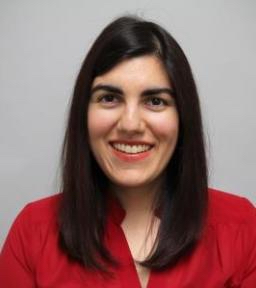 Ruhan Nagra
Ruhan NagraAssociate Professor, Law
Research Statement:
My research and teaching focus on environmental justice, human rights, and community-driven advocacy. I have a particular interest in the environmental justice implications of industrial and climate change-induced property buyouts.
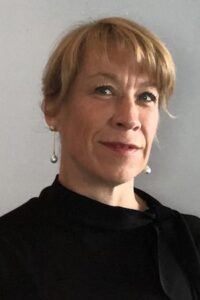 Jamie Pleune
Jamie PleuneAssociate Professor, Law
Research Statement:
My scholarly focus is on informing decisions on public lands management: reducing GHG emissions from oil and gas leases on public lands, evidence-based recommendations for improving the National Environmental Policy Act, recommendations for expediting critical mineral permitting without compromising environmental protections, and a suggested methodology for measuring conservation success within the America the Beautiful Initiative (forthcoming).
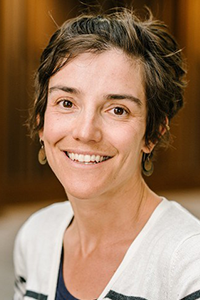 Danya Rumore
Danya RumoreResearch Associate Professor; Director, Environmental Dispute Resolution Program
Research Statement:
Danya Rumore’s research and other academic work focus on supporting more collaborative decision-making and planning in the context of science-intensive environmental issues. She is also a Visiting Assistant Professor in the City and Metropolitan Planning Department and a research affiliate of the Ecological Planning Center.
 John Ruple
John RupleResearch Professor, Law
Research Statement:
John Ruple’s research focuses on public land and water resource management, including efforts to improve management efficiency and collaborative resource management between the federal and state governments.
The departments of Materials Science and Engineering (MSE) and Metallurgical Engineering (MET E) have merged into a single academic department administered jointly by the College of Engineering and College of Mines and Earth Sciences.
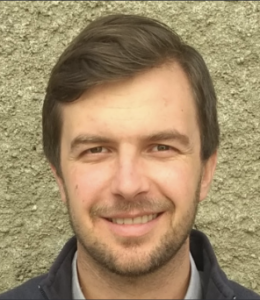 Leif Anderson, Research Assistant Professor, Geology & Geophysics
Leif Anderson, Research Assistant Professor, Geology & GeophysicsResearch Statement:
My research addresses how landscapes and glaciers respond to climate change. Explaining where hazardous glacial lakes form and drain allows for the future projection of hazards and water resources, as perturbation of downstream hydrology can have drastic effects on downstream ecosystems.
Lauren Birgenheier, Associate Professor, Geology & Geophysics
Research Statement:
Lauren studies sedimentology and stratigraphy, sequence stratigraphy, geochemistry, hydrocarbon/ petroleum geology, reservoir characterization, unconventional resources, as well as sedimentary successions record of paleoenvironmental and paleoclimatic change that can be used to understand current and predict future climate change
Gabriel Bowen , Professor, Geology & Geophysics
, Professor, Geology & Geophysics
Research Statement:
Gabe Bowen uses light stable isotopes and other tools to study coupling between the carbon cycle, water cycle, and ecology and evolution, both today and in the geological past. He is particularly interested in understanding how the spatial structure of these coupled systems emerges from and reflects their functioning and changes therein.
Brenda B. Bowen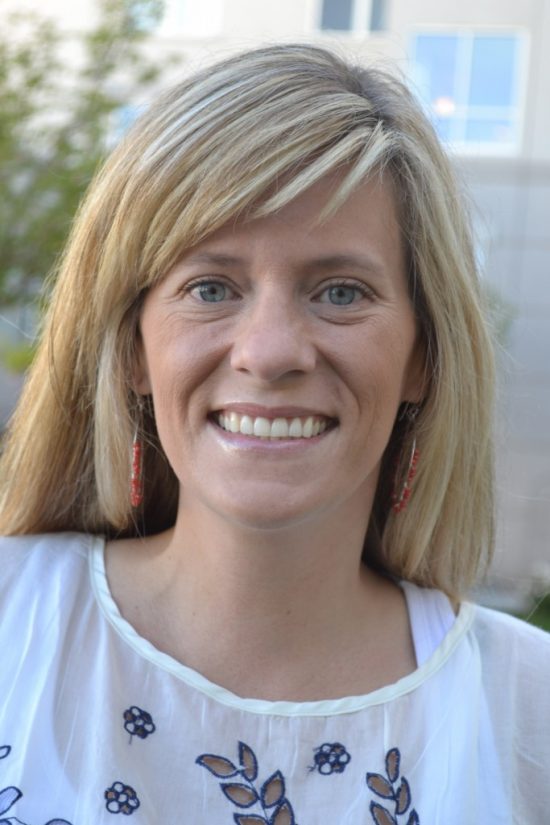 , Professor, Geology & Geophysics
, Professor, Geology & Geophysics
Research Statement:
Brenda Bowen’s research interests are focused on the
inter-relationships between sediments and fluids in both modern and ancient sedimentary environments and the depositional and diagenetic processes that influence paleoenvironmental records.
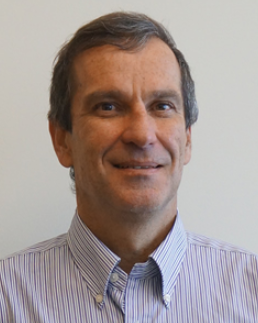 Paul D. Brooks, Professor, Geology & Geophysics
Paul D. Brooks, Professor, Geology & Geophysics
Research Statement:
Paul Brooks’ work integrates advances in quantifying water cycle dynamics with related disciplines of ecology, biogeochemistry, geology, and engineering to understand the resilience, resistance, and recovery of coupled human-natural systems to disturbance.
 Thure Cerling, Distinguished Professor, Geology & Geophysics
Thure Cerling, Distinguished Professor, Geology & Geophysics
Research Statement:
Thure Cerling’s research focuses on the geochemistry of processes occurring at near Earth’s surface and the geological record of ecological change.
Marjorie Chan , Distinguished Professor, Geology & Geophysics
, Distinguished Professor, Geology & Geophysics
Research Statement:
Marjorie Chan’s research interests are in clastic sedimentary geology, and multidisciplinary studies using aspects of facies, basin analysis, fluid flow, and modeling (with applications toward environmental and predictive problems).
Juan Carlos de Obeso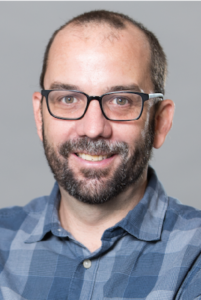 , Assistant Professor, Geology & Geophysics
, Assistant Professor, Geology & Geophysics
Research Statement:
My work is focused on understanding processes of water-rock interactions driving environmental and geologic changes as well as their potential to be enhanced towards a clean energy transition.
Zak Fang , Professor, Metallurgical Engineering in Department of Materials Science & Engineering
, Professor, Metallurgical Engineering in Department of Materials Science & Engineering
Research Statement:
Zak Fang’s work is focused on applying materials science in general, and powder materials in particular, to address the challenges of energy and environmental issues from a material perspective.
Diego Fernandez , Research Associate Professor, Geology & Geophysics
, Research Associate Professor, Geology & Geophysics
Research Statement:
Diego Fernandez’s field of study includes environmental records, geochronology and geoanalytical methods.
Michael Free, Professor, Metallurgical Engineering in Department of Materials Science & Engineering
Research Statement:
My research interests are focused primarily on metals and their interactions with solution environments. I am also very involved with industrial research that is often designed to save energy, reduce emissions, and more efficiently use resources.
 Timothy Garrett
Timothy Garrett
Professor, Atmospheric Sciences
Research Statement:
Timothy Garrett’s research focus is in the field of cloud physics, and also includes the development of simple physical models for understanding civilization growth.
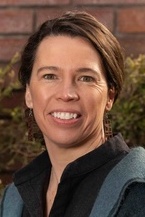 Gannet Hallar
Gannet HallarProfessor, Atmospheric Sciences
Research Statement:
The overarching theme of my research is using high quality measurements of trace gases, aerosol physical and chemical properties, and cloud microphysics to understand connections between the biosphere, atmosphere, and climate, along with the impact of anthropogenic emissions on these connections.
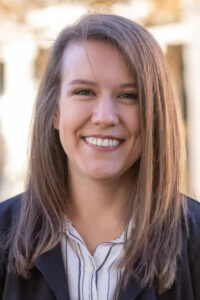 Jessica Haskins
Jessica Haskins
Assistant Professor, Atmospheric Sciences
Research Statement:
My research in atmospheric chemistry seeks to answer fundamental questions about which chemical pathways drive variability in air pollution formation in different environmental and emissions regimes and how we expect that to change in the future.
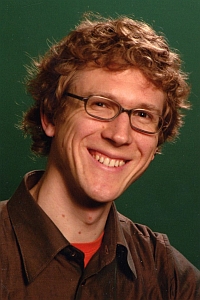 Sebastian Hoch
Sebastian Hoch
Research Assistant Professor, Atmospheric Sciences
Research Statement:
Sebastian Hoch’s research interests include atmospheric radiation, boundary layer processes, and surface climate.
John Horel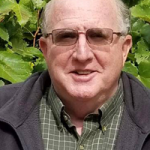
Professor, Atmospheric Sciences
Research Statement:
John Horel’s research is centered on the weather and climate of the western United States, data assimilation, mountain meteorology, fire weather, and Great Salt Lake studies.
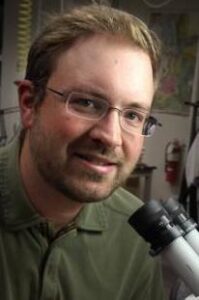 Randall Irmis
Randall Irmis
Associate Professor, Geology & Geophysics
Research Statement:
Randall Irmis’ research investigates the evolution of terrestrial ecosystems in deep time, particularly in response to climate change. Much of this work focuses on vertebrate animals from the Mesozoic hothouse world, a possible analogue to our future human-induced climate state.
Marie Jackson
Research Associate Professor, Geology & Geophysics
Research Statement:
Marie Jackson’s research interests focus on the cementititous characteristics of Roman concretes and volcanic tephra deposits, and the implementation of these materials in environmentally-friendly concretes.
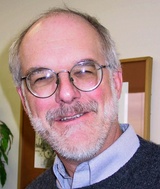 Paul Jewell
Paul Jewell
Professor, Geology & Geophysics
Research Statement:
Paul Jewell’s field of study includes surface water hydrology, surficial processes, and the fluid dynamics of earth processes.
Cari Johnson
Professor, Geology & Geophyics
Research Statement:
Cari Johnson’s research is broadly aimed at interpreting the sedimentary record as it relates to basin evolution, and includes sedimentary geology, basin analysis, and petroleum geology.
William Johnson
Professor, Geology & Geophysics
Research Statement:
William Johnson’s field of study includes geological engineering, hydrology, colloid transport, and aqueos organic chemistry.
Mark Koopman
Research Assistant Professor, Metallurgical Engineering in Department of Materials Science & Engineering
Research Statement:
Mark Koopman’s research focuses on using powder metallurgy and basic principles of materials engineering to facilitate advancement in the production, storage and use of energy in mechanized systems.
Steven Krueger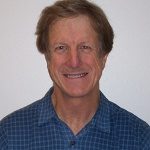
Professor, Atmospheric Sciences
Research Statement:
Steven Krueger’s research interests include numerical simulation of cloud systems, with particular emphasis on the interactions between large-scale and cloud-scale processes, as well as turbulence and mixing in clouds and the boundary layer, and numerical modeling of wildfires.
Marysa Lague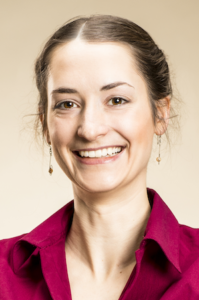
Assistant Professor, Atmospheric Sciences
Research Statement:
I am a large-scale climate scientist specializing in land-atmosphere interactions, with a particular focus on the coupling between terrestrial processes, atmospheric dynamics, and the global energy and water budgets.
 Fan-Chi Lin
Fan-Chi Lin
Assistant Professor, Geology & Geophysics
Research Statement:
Fan-Chi Lin’s primary research interest focuses on using passive seismic signals to image earth’s subsurface structure. An example is addressing how the hydrothermal system in Yellowstone might be affected by environment changes and human activities on various different temporal and spatial scales
John Chun-Han Lin
Professor, Atmospheric Sciences
Research Statement:
John Lin’s research seeks to understand the exchange of greenhouse gases, pollutants, and water between the land and the atmosphere by combining atmospheric modeling with in-situ and satellite data.
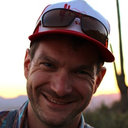 Peter C. Lippert
Peter C. Lippert
Assistant Professor, Geology & Geophysics
Research Statement:
I utilize the unique information encoded in the magnetic and chemical properties of geological materials to understand tectonic, paleoclimate, and paleoecological processes, and to recognize feedbacks between geodynamics, climate change, and surface processes.
 Huilian Ma
Huilian Ma
Research Associate Professor, Geology & Geophysics
Research Statement:
My current research topic focuses on investigating the influences of particle shape and surface charge heterogeneity on the transport and fate of particles in groundwater and/or subsurface water systems. Potential social impacts include production of safe drinking water, water resources protection, granular material handling, printing and coating, drug delivery, aerosol and fuel filtration.
 Derek Mallia
Derek Mallia
Research Associate Professor, Atmospheric Sciences
Research Statement:
Derek Mallia's research interests are primarily focused on elucidating critical processes that drive wildfire behavior, smoke dispersion, and wind-blown dust. Derek is also interested in combining atmospheric models with statistical techniques to identify major sources of atmospheric pollutants and greenhouse gases in urban environments.
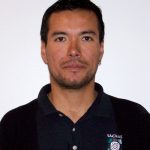 Daniel Mendoza
Daniel Mendoza
Research Assistant Professor, Atmospheric Sciences
Research Statement:
As a Research Assistant Professor in Atmospheric Sciences and Pulmonary Fellow in the School of Medicine, I have been able to work in both basic science and health. My research interests are current health impacts of air quality and the intersection of metropolitan planning and detailed emissions inventory.
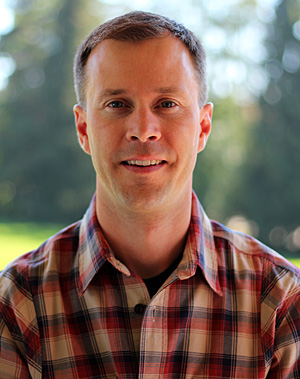 Jeffrey R. Moore
Jeffrey R. Moore
Associate Professor, Geology & Geophysics
Research Statement:
Jeff Moore’s primary research focus seeks to understand erosional and damage mechanics of natural rock arches, based in ambient vibration sensing. He also explores anthropogenic effects on natural arches, e.g. visitor traffic at national parks, which interfaces with management questions and needs.
Chadlin Ostrander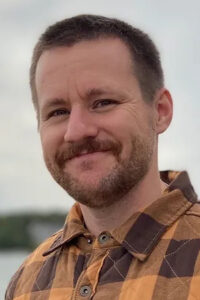
Assistant Professor, Geology & Geophysics
Research Statement:
My research to this point uses geochemistry to reconstruct Earth’s ancient environments – an aim that is directly aligned with the GCSC’s mission. Lessons learned about Earth’s ancient environmental history serve as our best blueprint for predicting and forecasting Earth’s future. Earth is changing, but this is not the first time this has happened. What lessons can we learn from an ancient Earth?
Zhaoxia Pu
Professor, Atmospheric Sciences
Research Statement:
Zhaoxia Pu’s research interests include numerical modeling, data assimilation and predictability of high-impact weather systems.
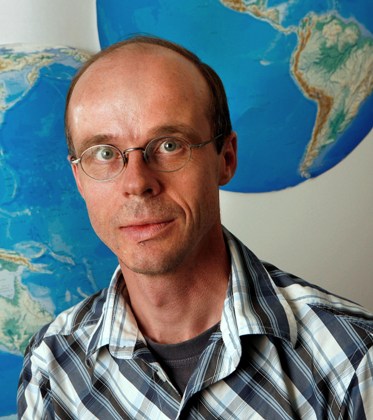 Thomas Reichler
Thomas Reichler
Associate Professor, Atmospheric Sciences
Research Statement:
Thomas Reichler is a climate modeler and analyst who is interested in large scale aspects of the atmospheric circulation and how it relates to climate change.
Kathleen Ritterbush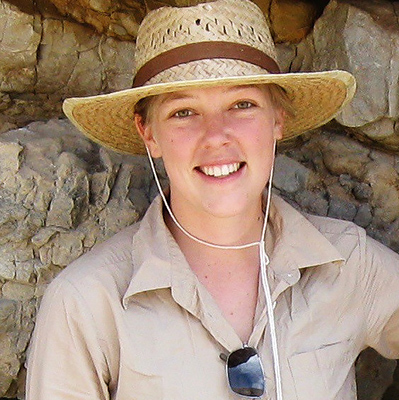
Assistant Professor, Geology & Geophysics
Research Statement:
Kathleen Ritterbush is a paleocologist researching stasis and change in marine invertebrate ecosystems of the Mesozoic and Paleozoic. She investigates how organisms influence marine habitats and how they respond to widespread environmental change
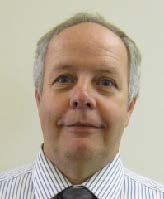 Kip Solomon
Kip Solomon
Professor, Geology & Geophysics
Research Statement:
Kip Solomon’s field of study includes groundwater hydrology, environmental geology, and geological engineering.
Jim Steenburgh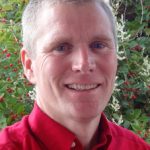
Professor, Atmospheric Sciences
Research Statement:
Jim Steenburgh’s research examines the weather and climate of the western United States and other mountainous regions of the world, with emphasis on orographic and lake-effect precipitation, front-mountain interactions, and weather analysis and forecasting.
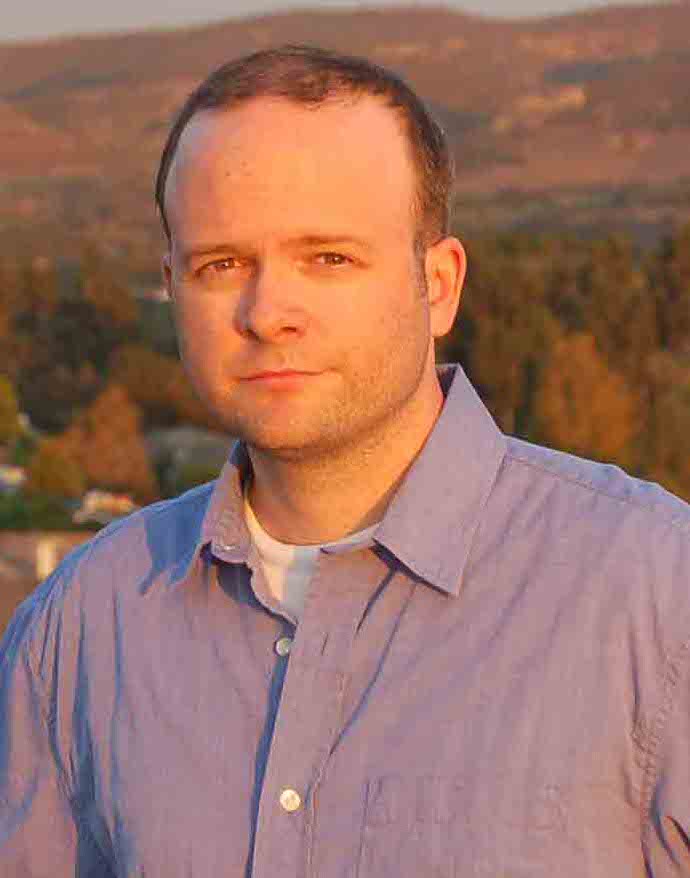 Courtenay Strong
Courtenay Strong
Associate Professor, Atmospheric Sciences
Research Statement:
Courtenay Strong’s research interests include the relationship between sea ice dynamics and atmospheric curculation variability, Pacific atmosphere-ocean feedback, the role of tropospheric Rossby wave breaking in the North Atlantic Oscillation and Northern Annular Mode, and historical trends in the position and strength of jet streams.
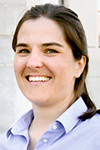 Jessica Wempen
Jessica Wempen
Assistant Professor, Mining Engineering
Research Statement:
Jessica Wempen’s research applies remote sensing for mine and environmental monitoring, with emphasis on monitoring surface deformation related to underground extraction of natural resources and on spectral imaging to monitor environmental impacts of mining and to identify potential sources of important resources, including copper and rare earth elements.
Frederick Adler
Professor, Mathematics & Biology
Research Statement:
Fred Adler’s research interests include mathematical ecology, epidemiology and immunology, urban and evolutionary ecology, and biodiversity.
William Anderegg
Associate Professor, Biology
Research Statement:
My research focuses on the responses of terrestrial ecosystems to global change. In particular, I study the impacts of climate extremes, such as severe heat or drought stress, on forests and what this means for the future of forested ecosystems on Earth.
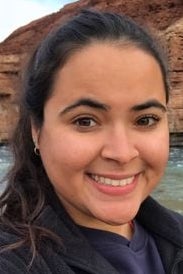 Luiza Aparecido
Luiza Aparecido
Assistant Professor, Biology
Research Statement:
My research group aims on identifying the mechanisms and traits that allow plants to survive under extreme climatic conditions. We are currently focused on the effects of thermal stress on plant physiology in natural and urban areas.
Dave Bowling
Professor, Biology
Research Statement:
Dave Bowling’s primary research interests include the ecosystem ecology of forest, mountain, and arid biomes, biogeochemistry, biosphere-atmosphere interactions, and environmental change.
William Brazelton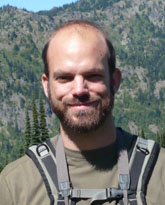
Assistant Professor, Biology
Research Statement:
The Brazelton lab studies extremophilic microbes: weird archaea and bacteria that inspire us to consider unusual ideas about ecology and evolution.
Sarah Bush
Associate Professor, Biology
Research Statement:
Sarah Bush’s research focuses on the evolutionary ecology of host-parasite interations, with a particular interest in using macroevolutionary information for hosts and their co-evolving parasites to generate testable hypotheses about ecological factors determining host-specificity.
Dale Clayton
Professor, Biology
Research Statement:
Dale Clayton’s research interests include the ecology and evolution of host-parasite interactions (particularly those involving birds and parasitic insects), and the interface of microevolution and macroevolution.
Denise Dearing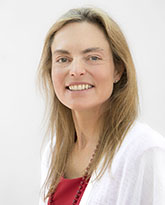
Distinguished Professor, Biology
Research Statement:
Denise Dearing’s research focuses on ecological factors and physiological constraints that influence foraging behavior, and the evolution of diet breadth in mammalian herbivores, as well as host-pathogen interactions.
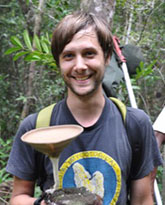 Bryn Dentinger
Bryn Dentinger
Associate Professor, Biology
Research Statement:
Fungi play a critical role in terrestrial plant productivity through mycorrhizal symbiosis, yet the vast majority of fungal diversity remains unknown. Research in my lab focuses on documenting, describing and understanding the ecology and evolution of fungal diversity using collections-based molecular phylogenetic and genomic tools.
Jim Ehleringer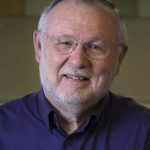
Distinguished Professor, Biology
Research Statement:
Jim Ehleringer’s research interests include the interactions between the global change drivers, ecosystem form and function, and the responses of plant species.
Colleen Farmer
Professor, Biology
Research Statement:
My research aims to understand the evolutionary sequence of events involved in major vertebrate transitions, especially aspects of the evolution of the cardiopulmonary system and the transition from ectothermy to endothermy.
Don Feener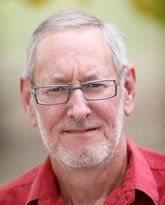
Professor, Biology
Research Statement:
Don Feener’s research interests include the ecology of direct and indirect effects in insect communities, evolutionary and behavioral ecology of host-parasitoid interactions, and the division of labor and functional ecology of ant castes.
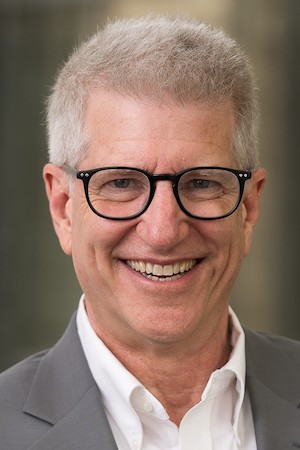 Kenneth M. Golden
Kenneth M. Golden
Professor, Mathematics
Research Statement:
Kenneth Golden’s research interests lie in sea ice, climate change, composite materials, phase transitions, and inverse problems.
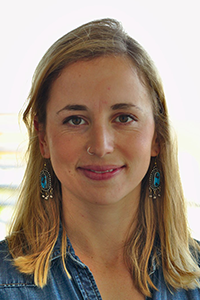 Talia Karasov
Talia Karasov
Assistant Professor, School of Biological Sciences
Research Statement:
Talia's research focuses on the spread and evolution of microbial pathogens in plant populations. This work speaks to the importance of plant species diversity in preventing epidemics that wipe out plant populations, and how human disturbance of this diversity may enable epidemics.
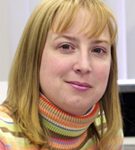 Shelley Minteer
Shelley Minteer
Professor, Chemistry and Materials Science and Engineering
Research Statement:
Shelley’s research focus is mainly on improving the energy efficiency of energy conversion and storage devices.
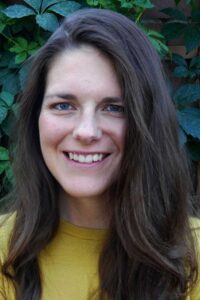 Jody Reimer
Jody Reimer
Assistant Professor, Mathematics and Biology
Research Statement:
My research lies at the intersection of ecology, mathematical models, and the statistical techniques necessary to connect them. Broadly speaking, my research explores how we can leverage mathematical models to understand and affect ecological processes, especially in the presence of ongoing rapid environmental change.
Caroline Saouma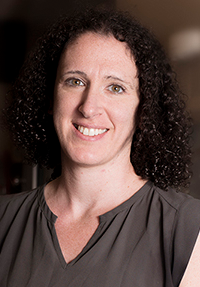
Assistant Professor, Chemistry
Research Statement:
Caroline’s research program is focused on developing a fundamental understanding of transition-metal mediated small molecule activation, as it pertains to energy conversion and green synthetic applications.
Jon Seger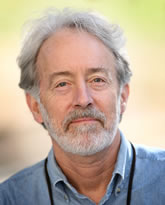
Professor, Biology
Research Statement:
Jon Seger’s research interests include mitochondrial population genomics of whale lice and mildly deletrious mutations as obstacles to adaptation.
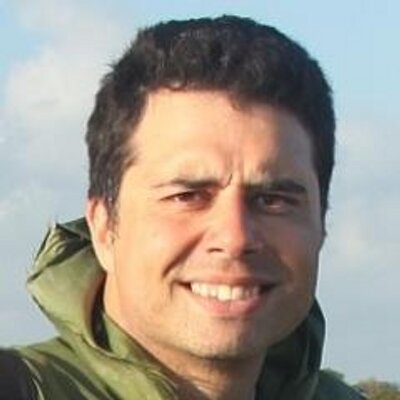 Cagan Sekercioglu
Cagan Sekercioglu
Associate Professor, Biology
Research Statement:
Cagan Sekercioglu’s research interests include conservation biology, tropical biology, ornithology, and landscape ecology.
Sylvia Torti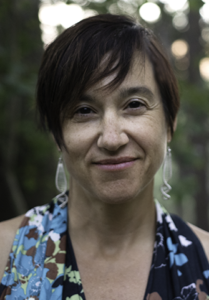
Research Assistant Professor, Biology
Research Statement:
As an ecologist and Dean of the Honors College. Sylvia works at the interface between science, environment, communication, and education. Her research focuses on coupling science with writing and communication and exploring the relationships between humans and their environment.
Thanh Truong
Professor, Chemistry
Research Statement:
Thanh’s sustainability research interests are design and development of cyberinfrastructure for research and education in computational science and engineering to address environmental and sustainability issues.
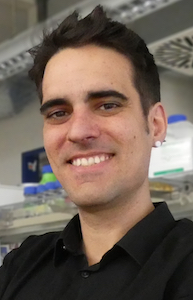 Michael Werner
Michael Werner
Assistant Professor, School of Biological Sciences
Research Statement:
Dr. Werner takes an integrative approach to identify the epigenetic mechanisms that regulate phenotypic plasticity, and their potential roles in ecology, evolution and human health. This is relevant to one of the pressing questions regarding climate change: can plastic responses help to mitigate the impacts of temperature and drought on species survival?
 Luisa Whittaker-Brooks
Luisa Whittaker-Brooks
Associate Professor, Chemistry
Research Statement:
My research program centers on developing a deep understanding of the physical and chemical processes affecting the performance of energy conversion and storage technologies. These processes have direct implications on how sustainable energy technologies are in terms of cost, longevity, and feasibility.
Ilya Zharov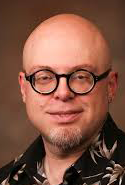
Associate Professor, Chemistry
Research Statement:
Ilya’s current research s focused in areas related to sustainability by the virtue of trying to solve energy storage, production and consumption problems, as well as environmental remediation, using nanomaterials.
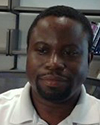 Lazarus Adua
Lazarus AduaAssociate Professor, Sociology
Research Statement:
My research focuses on the human dimensions of energy (i.e., residential energy inequality and the comparative impacts of efficiency improvement and lifestyles on energy consumption), the structural drivers of global environmental change, and environmental concern and activism.
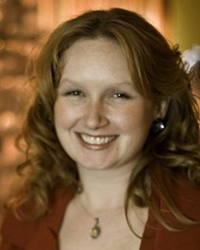 Shannon Arnold-Boomgarden
Shannon Arnold-Boomgarden
Director, Range Creek Field School; Adjunct Assistant Professor, Archeology
Research Statement:
Shannon studies the interactions of humans (Southwestern farmers AD 700-1300) and natural ecosystems (semi- arid environments in the Southwest like Range Creek Canyon).
 Stephen Bannister
Stephen Bannister
Director, Master of Science in International Affairs and Global Enterprise; Associate Professor, Economics
Research Statement:
Over the past decade, my research has focused on a different approach to modeling systems that impact GHG emissions and therefore global warming. My approach is a methodology that interacts the dynamics of population trends, living standard trends, energy intensities), and GHG flux.
Tabitha Benney
Associate Professor, Political Science
Research Statement:
Tabitha Benney’s research interests include International Relations, International Political Economy, Energy and Environmental Policy, and Research Methods. Her main focus is in the area of Global Governance, Energy Policy and Environmental Sustainability in emerging economies.
Haimanti Bhattacharya
Professor, Economics
Research Statement:
Haimanti Bhattacharya’s research interests include environmental and resource economics, development economics, and experimental and behavioral economics.
Joan Brenner-Coltrain
Research Associate Professor, Anthropology
Research Statement:
Joan’s research interests focus on molecular techniques for the reconstruction of prehistoric subsistence patterns. She examines the effects of climate change on the sustainability of prehistoric economies.
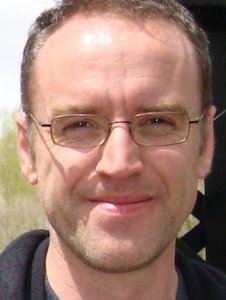 Simon Brewer
Simon Brewer
Associate Professor, Geography
Research Statement:
Simon Brewer’s research focuses on terrestrial environmental response to climate change at large spatial and temporal scales.
Andrea R. Brunelle
Professor, Geography
Research Statement:
Andrea Brunelle is interested in the paleoecology of the western United States, with an emphasis on: fire history, climate changes, vegetations reconstructions, and long-term records of insect infestation.
Adrienne Cachelin
Professor (Lecturer), Environmental & Sustainability Studies
Research Statement:
Adrienne Cachelin’s research explores framing in education for sustainability and critical sustainability in educational contexts. She is also an Associate Professor of Environmental and Sustainability Studies.
Juliet Carlisle
Professor, Political Science and Environmental & Sustainability Studies
Research Statement:
My research interests include public opinion, survey research, environmental politics, and political socialization. I seek to explain the causes and characteristics of public opinion/attitudes, knowledge, and behavior regarding politics, the environment, and energy development.
David Carter
Associate Professor, Political Science
Research Statement:
As a public policy scholar, I study the processes by which governments (and other equivalent authorities) select, enact, and implement policies and programs. Within this scope, I focus on the design and administration of environmental regulation.
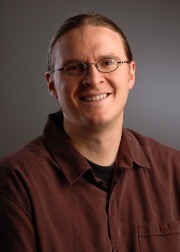 Brett Clark
Brett Clark
Professor, Sociology
Research Statement:
One goal of Brett Clark’s research is to incorporate nature—its processes and ecosystems—into social analysis and social theory, in order to present a more comprehensive account of the relationship between nature and society.
Brian Codding
Professor, Anthropology
Research Statement:
Brian Codding’s research focuses on examining human-environment interactions among small scale societies in the past and present.
 Tim Collins
Tim Collins
Professor, Geography
Research Statement:
Tim Collins’ research focuses on environmental justice, health disparities, and social vulnerability to environmental hazards/disasters.
Philip E. Dennison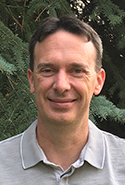
Professor, Geography
Research Statement:
Philip Dennison’s research interests include remote sensing of vegetation physiology and phenology, imaging spectroscopy, wildfire and fire danger modeling, vegetation and the carbon cycle, and natural hazards.
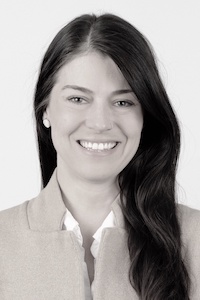 Jessica DiCarlo
Jessica DiCarlo
Assistant Professor, Geography, Environmental & Sustainability Studies, and Asian Studies
Research Statement:
My research focuses on infrastructure, issues at the environment-society nexus, and US-China cooperation and competition, including political ecologies and economies of energy transition and mining. Over the last decade, I have explored interdisciplinary questions of rural livelihood adaptation amidst social-ecological change.
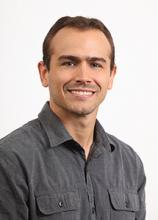 J. Tyler Faith
J. Tyler Faith
AssistantAssociate Professor, Anthropology
Research Statement:
My research broadly addresses the relationships between Quaternary mammal communities, climatic and environmental change, and human – environment interactions, with an emphasis on the African record. To explore these relationships, I study fossil mammals from archaeological and paleontological sites .
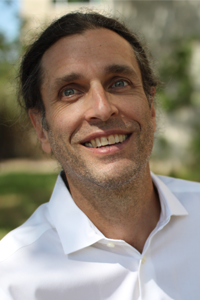 Matt Fry
Matt Fry
Associate Professor, Geography
Research Statement:
Matt Fry's research interests include energy, resources, environmental governance, and landscape change. His work addresses three critical human-environment research questions: (1) What socio-political mechanisms underlie control over and access to environmental resources? (2) How do our understandings of the environment, energy choices, and unsustainable lifestyles emerge and evolve? (3) How are local communities impacted by energy and resource production and consumption?
 Richard R. Forster
Richard R. Forster
Professor, Geography
Research Statement:
Rick Forster’s research primarily focuses on using remote sensing data to derive information about snow and ice conditions at the Earth’s surface. More specifically, he studies ice sheets, glaciers and seasonal snow cover response to climate change.
 Alexandra Greenwald
Alexandra Greenwald
Assistant Professor, Anthropology
Research Statement:
Alexandra Greenwald's research data provides insight into prehistoric population dynamics and social organization, human health and resiliency in the face of climate change, as well as human impacts on local ecologies. Additionally, data generated by my research regarding maternal and infant health in past populations impacted by climate change is especially important as interdisciplinary researchers seek to inform public policy on the treatment and care of increasing numbers of climate refugees.
 Sara Grineski
Sara Grineski
Professor, Sociology
Research Statement:
My research areas are in environmental social science, specifically environmental justice and environmental health disparities. I am interested in how environmental conditions relate to human health and well-being in complex, counterintuitive, and socially unequal ways.
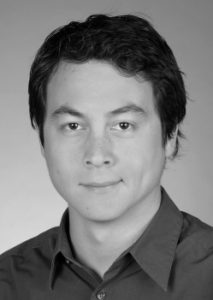 Alexander Hohl
Alexander Hohl
Assistant Professor, Geoology
Research Statement:
My research is centered on geographic information science (GIS), a discipline that focuses on data structures and computational techniques to capture, represent, process and analyze geographic information. I am particularly interested in the computational aspects of analyzing geographic phenomena, such as 1) the spread of emerging infectious diseases under global change and 2) the sustainable management of natural, social, and economic systems in response to the proliferation invasive species.
Leslie A. Knapp
Professor, Anthropology
Research Statement:
Leslie’s research focuses on genetic diversity, endocrinology and disease in natural populations of primates. Studies of immunity genes in natural populations living in undisturbed and fragmented habitats can help us understand the complex relationship between habitat and stress, genetic diversity, and adaptation.
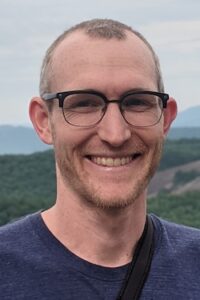 Tom Kraft
Tom Kraft
Assistant Professor, Anthropology
Research Statement:
My research as an evolutionary ecologist focuses on the ways in which biocultural interactions shape human health in traditional contexts. Specifically, I am currently co-directing a longitudinal research project that seeks to determine how particular aspects of environmental change – landscape degradation, road construction, dietary shifts, access to labor saving technology – govern changes in human health among the Indigenous populations of Peninsular Malaysia
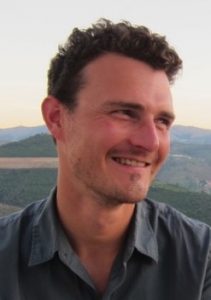 Andrew Linke
Andrew Linke
Associate Professor, Geography
Research Statement:
I use Geographic Information Systems, spatial statistics, large population surveys, and qualitative fieldwork to understand the geographies of violent conflict. I am working with colleagues on a large study investigating trends in environmental change and violence in sub-Saharan Africa.
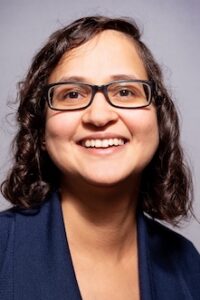 Monika Lohani
Monika Lohani
Assistant Professor, Psychology
Research Statement:
My research examines how people effectively regulate cognitive and affective challenges in response to daily and long-term stressors in real-world contexts. In recent work, I have started specifically focusing on climate-change relevant daily stressors and how they may impact everyday health and wellbeing
Lisbeth A. Louderback
Associate Professor, Anthropology
Research Statement:
Lisbeth’s research brings a strong interdisciplinary background to archaeology with technical expertise in archaeobotany and paleoecology. Micro- and macrobotanical remains from archaeological sites provide biological clues to past climates and local resources that help define human subsistence patterns and how they fluctuated through time. This allows Louderback to explore how people coped with environmental change during the late Pleistocene and Holocene on a global scale.
Zach Lundeen
Research Asst. Professor, Geography
Research Statement:
Zach Lundeen’s research primarily focuses on understanding the drivers of hydroclimatic variability in the West, and the impacts of climate change and variability on ecosystems.
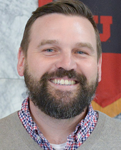 Shane Macfarlan
Shane Macfarlan
Assistant Professor, Anthropology
Research Statement:
Shane Macfarlan examines the behavioral ecology of cooperation, natural resource use, and economic decision-making in small-scale societies of the developing world
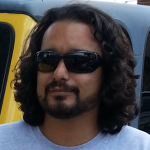 Richard Medina
Richard Medina
Associate Professor, Geography
Research Statement:
Richard Medina is a geographer with research interests in conflict, international terrorism, bias/hate, and Geographic Information Science.
 Richard Paine
Richard Paine
Associate Professor, Anthropology
Research Statement:
I am a bioarchaeologist/paleodemographer interested in interrelationships between people and their environments across time. I study both how humans have impacted their environments and the return effects for people.
 Monisha Pasupathi
Monisha Pasupathi
Professor, Developmental Psychology
Research Statement:
I am a developmental psychologist. In social-experimental work about pro-environmental behavior, we observed relationships between peak experiences in nature and place attachment. Storytelling is also important for the way people come to identify with places, policies, and actions related to sustainability.
Mitchell J. Power
Professor, Geography
Research Statement:
Mitchell Power is a biogeographer with interests in present and past vegetation communities, and his research is aimed at understanding the dominant controls of natural plant distributions in the temperate and tropical latitudes.
Summer B. Rupper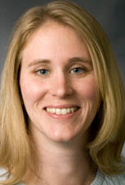
Professor, Geography
Research Statement:
Summer Rupper’s research interests are sited at the junctions of glaciology, hydrology, climatology, paleoclimatology, and geomorphology. A particular interest is quantifying natural climate variability and the response of Earth’s systems to changes in climate.
Jennifer Follstad Shah
Assistant Professor, Geography
Research Statement:
Jennifer Follstad Shah is an ecosystem ecologist whose research examines how climate change, urbanization, altered flow regimes, and non-native species invasions affect microbial community dynamics and ecosystem processes, such as nutrient cycling and decomposition.
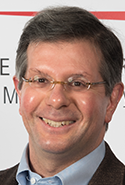
Christopher Simon
Professor, Political Science
Research Statement:
My work focuses on the political, social, and economic feasibility issues related to renewable energy, which oftentimes also draws attention to the issues of credible commitment on the part of citizen stakeholders, and private and public institutions.
McKenzie Skiles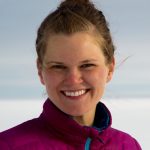
Associate Professor, Geography
Research Statement:
My research interests are inherently interdisciplinary and center on mountain hydrology, remote sensing of the cryosphere/cryospheric change, radiative forcing by light absorbing particulates in snow, and cryosphere-climate interaction.
Neng Wan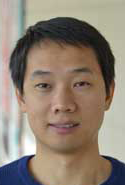
Associate Professor, Geography
Research Statement:
Neng Wan’s research interests include GIS--based modeling of exposure to environmental pollutants (e.g., particulate matter, sulfur dioxide, agricultural pesticides), health effects of air pollution exposure based on smartphone monitoring, and source-specific air pollution modeling.
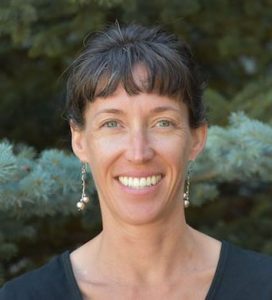 Jennifer Watt
Jennifer Watt
Associate Director and Associate Professor (Lecturer), Environmental and Sustainability Studies
Research Statement:
My research training is in paleoecology, specifically, using lake sediment cores to investigate past climate and fire regimes, and bark beetle outbreaks. I study the frequency of forest disturbance over time and assess the impacts of climate change.
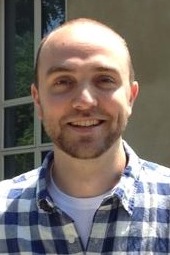 Tim Webster
Tim Webster
Assistant Professor, Anthropology
Research Statement:
My research program involves using computational and genomic methods to understand the processes shaping biological diversity to better understand how environmental change influences evolution and social behavior.
 Yehua Dennis Wei
Yehua Dennis Wei
Professor, Geography
Research Statement:
Dennis Wei is an economic/ urban geographer and development specialist, with research interests in globalization, urbanization, and regional development in China.
 Sarah Canham
Sarah Canham
Associate Professor, Social Work and City & Metropolitan Planning
Research statement:
My community- engaged research examines homelessness, housing security, health and social service delivery, and aging. Using a social justice lens, my interdisciplinary research seeks solutions to systemic barriers to aging well in various environments.
 Adam Hanley
Adam Hanley
Research Assistant Professor
Research Statement:
Dr. Hanley is exploring whether mindfulness – both as a dispositional quality and as a practice induced state – impacts nature connectedness and ecological behavior. Our preliminary findings suggest that if we can increase feelings of nature connectedness via practicing mindfulness outdoors, then, we can encourage environmental stewardship.
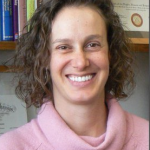 Joanna Schaefer
Joanna Schaefer
Professor
Research Statement:
I have investigated for more than a decade the outcomes of wilderness therapy programs. I am particularly interested in how being outdoors, or in wilderness environments, impacts mental health.
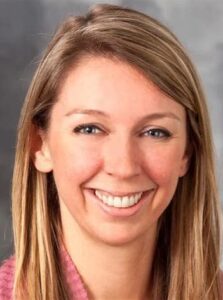 Laura Bellaire
Laura Bellaire
Assistant Professor, Orthopaedics
I founded the Pediatric Orthopaedic Society of North America (POSNA) Sustainability Committee, and am creating educational materials appropriate for orthopaedic surgeons as well as engaging in several research studies surrounding waste reduction and medical sustainability. I am particularly interested in generating more granular data about orthopaedic instruments and implants using Life Cycle Analyses. I hope to increase transparency and help other surgeons make informed decisions about the products and materials they utilize.
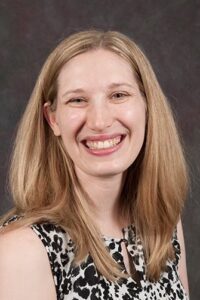 Shana Godfred-Cato
Shana Godfred-Cato
Assistant Professor (Clinical), Pediatrics
I have a strong interest in how climate change impacts children and pregnant persons. I have spent the last 10 years working on disaster preparedness for pregnant persons and children; now more than ever families need to be prepared as climate-related disasters are increasing worldwide.
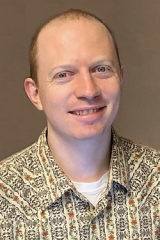 John Pearson, M.D. Assistant Professor, Anesthesiology
John Pearson, M.D. Assistant Professor, Anesthesiology
Dr. Pearson is interested in in geospatial analysis of healthcare data. Past research projects include examining the geospatial relationship of opioid needles to areas of social distress, as well as utilizing smartphone generated GPS patterns to study the relationship between satellite derived vegetation indexes and mental health outcomes. A current research project uses geospatial analysis to explore social and environmental influences on perioperative outcomes.
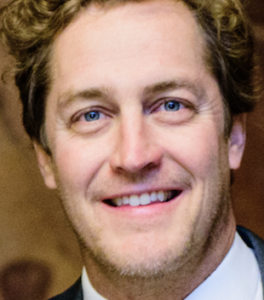 Jeff Robison, M.D. Associate Professor, Pediatrics
Jeff Robison, M.D. Associate Professor, Pediatrics
Dr. Robison is the Associate Chair for Community and Global Engagement in the Department of Pediatrics and an attending physician in the Primary Children’s Hospital Emergency Department. His academic interests include the impact of climate change on global child health with an emphasis on the disproportional impact of climate change on vulnerable children internationally and domestically.
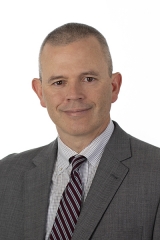 Steve Sugden, M.D., Assistant Professor (Clinical), Huntsman Mental Health Institute
Steve Sugden, M.D., Assistant Professor (Clinical), Huntsman Mental Health Institute
Dr. Sugden is a member of the American Psychiatric Association's Climate Psychiatry Alliance. He teaches climate psychiatry, which focuses on the growing challenges that the changing environment will have on mental health. He is working to expand research into the effects of climate change on behavioral health change.
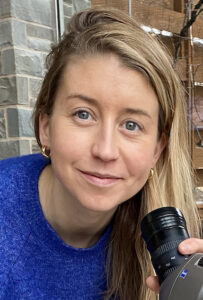 Katharine Walter, Assistant Professor, Epidemiology
Katharine Walter, Assistant Professor, Epidemiology
Katharine is interested in how environmental changes–including climate change, habitat fragmentation, and mass incarceration–shape our pathogen exposures and determine who gets sick. Her lab develops and applies tools that integrate pathogen variation with ecological, spatial, and epidemiological information to ask both applied and fundamental questions about pathogen transmission dynamics and geographic spread, with a focus on emerging zoonotic pathogens associated with rapid environmental change as well as M. tuberculosis.
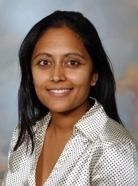 Smitha Warrier, M.D.
Smitha Warrier, M.D.
Associate Professor (Clinical)
Department of Anesthesiology
Dr. Warrier is the Medical Director of Environmental and Social Sustainability for University of Utah Health Sciences. She collaborates with the Sustainability Office to expand sustainability efforts onto the U of U's health sciences campus. With this ongoing partnership, the goal is to not only improve the environmental footprint of our health sciences space, but also incorporate sustainability into curriculum, advance research, and inspire innovation surrounding climate, equity and health.

